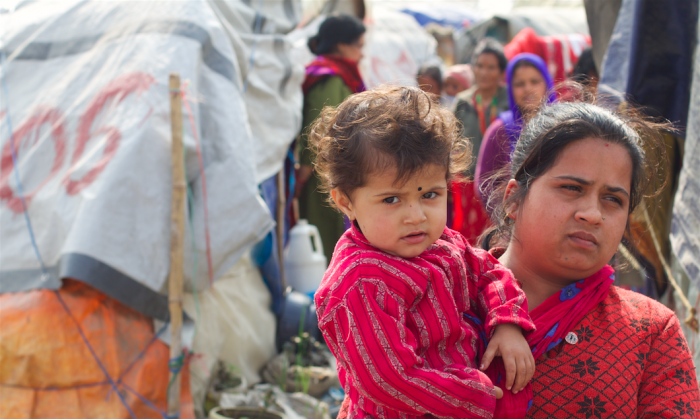Youngest Children Left Behind in Crises, but Business can Intervene

Photo by Lauren Ciell/A World At School
Following the annual United Nations General Assembly last week, advocates and policymakers are sounding the alarm for the critical need for comprehensive early childhood development (ECD) programs. Nowhere else is ECD more critical than in emergency response efforts.
On September 18, world leaders met at the United Nations for the long-anticipated release of the International Commission on Financing Global Education Opportunity’s report, The Learning Generation: Investing in Education for a Changing World. The report highlights the essential importance of investments in the early years of a child’s life, particularly the first 1000 days, to support healthy cognitive development, academic achievement, and adult success. At the report launch, Jim Kim, President of the World Bank, insisted that “we have to start investing in the early years to prepare people for the jobs of the future.”
The Commission’s report further emphasizes the need for a coordinated, multi-sector approach to support ECD that integrates education, health, nutrition, and social protection services in order to best prepare children for school and success later in life. Anthony Lake, Executive Director of UNICEF explained that “investing from the earliest days of a child’s life is critical to the development of the brain. It is a once in a lifetime chance to build the future of a child – no stage in a child’s life is more important.”
There is no time to waste in engaging and investing in early childhood development.
This past June, GBC-Education released a report outlining the business case for engaging in early childhood development, detailing the substantial economic and social benefits yielded by children, business, and society through investments in ECD programs. The approach focuses on increasing children’s access to comprehensive programs that emphasize early learning, child and maternal health, child care, and nutrition—aligning with the Sustainable Development Goal target 4.2 that all children “have access to quality early childhood development, care and pre-primary education.”
While business has a critical role to play in expanding the extremely limited pool of ECD services in peaceful settings, as the Commission well notes, the need is especially dire during an emergency. A new report released by children’s charity Theirworld reveals the even greater urgency of providing early childhood development services for children living through conflicts and emergencies.
86.7 million children under 7 years old have spent their entire lives in conflict, where children under five have the highest rates of any age group of both illness and death. Theirworld’s report chronicles the multitude of physical, psychological, and developmental threats facing babies and toddlers during conflict, natural disaster, or instability. These threats can have lifelong ramifications for children’s health, learning, and ability to thrive. Without adequate support, children risk toxic stress, psychological trauma, inadequate cognitive and emotional development in addition to the many physical dangers that threaten their health and wellbeing.
Despite the evident need, Theirworld reports that more than 60 per cent of active 2016 humanitarian response plans, flash appeals and refugee response plans do not include comprehensive ECD services within their education sector responses. Less than one third of these plans make any mention of early childhood education or early childhood development. Scaling up these essential services, requires increased prioritization and financing for ECD programs as well as new and innovative programming so that no children are left behind.
Business is positioned to lead the way in providing the solutions and innovation necessary to ensure every child has access to comprehensive, quality ECD programs, especially in emergencies.
To this end, GBC-Education has created a mechanism for business to engage in the provision of education in emergencies beyond just financial contributions: by registering in our new REACT (Rapid Education Action) Database. REACT provides a platform for business to register resources, like in-kind donations or volunteers, that they could deploy to support ECD and education for children in the case of another humanitarian crisis.
Join the numerous companies who have already contributed to this effort by signing up for the REACT Database.
Learn more about how business can engage in ECD by visiting our page, and reach out to us at [email protected].
